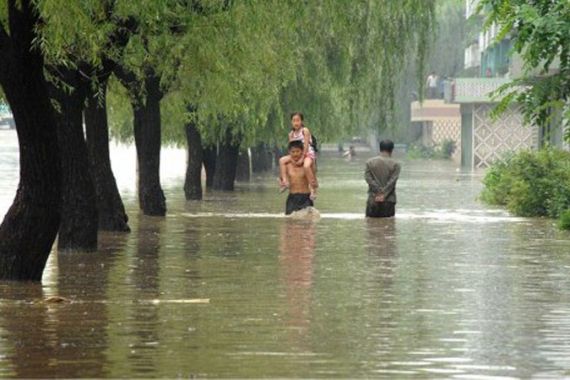UN chief seeks to ease tension between Koreas
Ban Ki-moon looking for ways to lessen fraught relations on peninsula, and vows more UN aid for flood-hit North Korea.

UN chief Ban Ki-moon has said that he is seeking a way to ease tensions between North and South Korea, and promised more help to Pyongyang to recover from deadly floods.
Ban, a former South Korean foreign minister, said relations between the two sides had soured recently.
Keep reading
list of 4 itemsCould shipping containers be the answer to Ghana’s housing crisis?
Thousands protest against over-tourism in Spain’s Canary Islands
Holding Up the Sky: Saving the Indigenous Yanomami tribe in Brazil’s Amazon
“As the UN secretary-general, I have continually paid attention to this and am thinking hard how to create an opportunity to ease tension on the peninsula leading to reconciliation,” he told reporters on Monday during a visit to Seoul.
In recent months the North has threatened “sacred war” against the South’s conservative government for alleged insults to, and plots against, Pyongyang.
The North is also grappling with the after-effects of floods that killed 169 people and left 400 missing, according to official figures.
State media said floods and torrential rain between late June and the end of July had also made 212,200 people homeless.
Floods were said to have washed away or inundated 65,280 hectares (161,310 acres) of cropland, in a country already suffering severe food shortages.
‘Deep concern’
UN agencies have visited the worst-hit areas to assess aid needs.
Ban said the world body had “deep concern” about the situation. “UN humanitarian bodies have offered necessary support and plan to expand it further,” he said.
UN agencies and other humanitarian bodies based in the North said they could not independently verify the government figures, but flood damage was evident in areas that had been visited.
In a report on Monday, they said a lack of drinking water, which heightened the risk of diarrhoea outbreaks, was still a major concern.
Agencies had distributed thousands of water and hygiene kits along with more than a million water purification tablets.
An increase in acute malnutrition among children under five had been reported, most probably due to diarrhoea. Hospitals and clinics lacked essential drugs and even splints and bandages.
The UN’s World Food Programme has provided 570 tonnes of grain to feed about 102,000 people for 14 days, and another 5,000 tonnes was needed for longer-term help, the report said.
Monitoring teams were checking that the food reached people in need, it said, adding about $3.7m was required to fund overall relief work.